I have implemented an 8 bit serial-in parallel-out register in SystemVerilog and I'm trying to test it. I'm using Icarus Verilog as simulator.
In the test bench, I send 8 bits and wait for the rising edge of a signal, then check the obtained parallel buffer. The problem is that, after waiting for the rising edge, the parallel buffer has not the expected value. However, if I add a #0 delay to the assert it does work.
The signal on which I'm waiting the rising edge, and the buffer that should contain the expected value are assigned as:
assign rdy = (i == 7) & was_enabled;
assign out_data = {8{rdy}} & buff;
I know buff contains the right value, then, how is that on the rising edge of rdy, rdy is effectively 1 but out_data is still 0?
Wave dump
Note: See how when rdy goes high out_data is 0xaa.
Code
Serial-in parallel-out register
module sipo_reg(
input wire in_data,
output wire [7:0] out_data,
output wire rdy,
input wire en,
input wire rst,
input wire clk
);
reg [7:0] buff;
reg [2:0] i;
reg was_enabled;
wire _clk;
always @(posedge _clk, posedge rst) begin
if (rst) begin
buff <= 0;
i <= 7;
was_enabled <= 0;
end else begin
was_enabled <= 1;
buff[i] <= in_data;
i <= i == 0 ? 7 : (i - 1);
end
end
assign _clk = en | clk; // I know this is a very bad practice, I'm on it...
assign rdy = (i == 7) & was_enabled;
assign out_data = {8{rdy}} & buff;
endmodule
Test bench:
module utils_sipo_reg_tb;
reg clk = 1'b1;
wire _clk;
always #2 clk = ~clk;
assign _clk = clk | en;
reg in_data = 1'b0, rst = 1'b0, en = 1'b0;
wire [7:0] out_data;
wire rdy;
sipo_reg dut(in_data, out_data, rdy, en, rst, clk);
integer i = 0;
initial begin
$dumpfile(`VCD);
$dumpvars(1, utils_sipo_reg_tb);
en = 1;
#4 rst = 1;
#4 rst = 0;
assert(out_data === 8'b0);
assert(rdy === 1'b0);
//
// read 8 bits works
//
#4 en = 0;
for (i = 0; i < 8; i = i + 1) begin
@(negedge _clk) in_data = ~in_data;
end
en = 1;
@(posedge rdy);
assert(rdy === 1'b1);
assert(out_data === 8'haa); // <-- This fails, but works if I add a '#0' delay.
#20;
$finish;
end
endmodule
I have tried to replace these lines
assign rdy = (i == 7) & was_enabled;
assign out_data = {8{rdy}} & buff;
by these
assign rdy = (i == 7) & was_enabled;
assign out_data = {8{((i == 7) & was_enabled)}} & buff;
because I suspected the simulator was 'calculating' out_data after rdy because the former depends on the latter. However, they are still continuous assignments with 0 delay, I would expect them to get their value at the exact same time (unless a delay is added).
Would it be a good design practice to add a few picoseconds of delay after each @(posedge signal) to make sure everything is settled by the simulator?
